Election 2022: Anthony Albanese rewrites his own economic history
He tried to inflate his status as an ‘economics adviser’ to the legendary reformist Hawke government to pump up his damaged economic credentials. He was in fact a ‘research officer’.
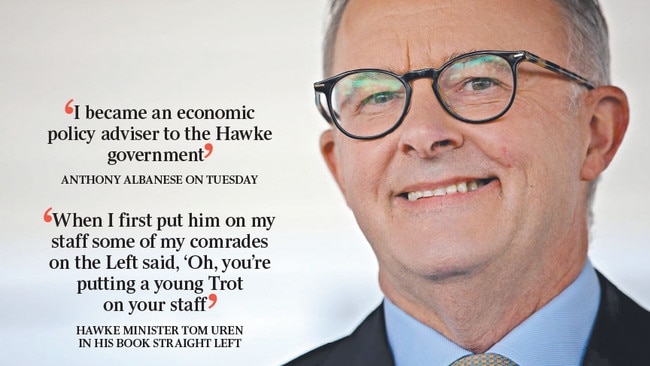
Anthony Albanese has tried to inflate his status as an “economics adviser” to the legendary reformist centre-right Hawke government in a bid to pump up his damaged economic credentials but was in fact a “research officer” to a hard-left out-of-cabinet minister and was strongly opposed to the major reforms of the time, including privatisation, HECS and financial deregulation.
Mr Albanese sought to re-establish his economic credentials on Tuesday after being caught not knowing the cash rate or the unemployment rate a day earlier.
In doing so, he claimed during a press conference he “became an economic policy adviser to the Hawke government” after spending four years at Sydney University. However, the only position Mr Albanese held in the Hawke government, which was in office from 1983 to 1991, was working for Tom Uren, who was minister for territories and local government and then administrative services.
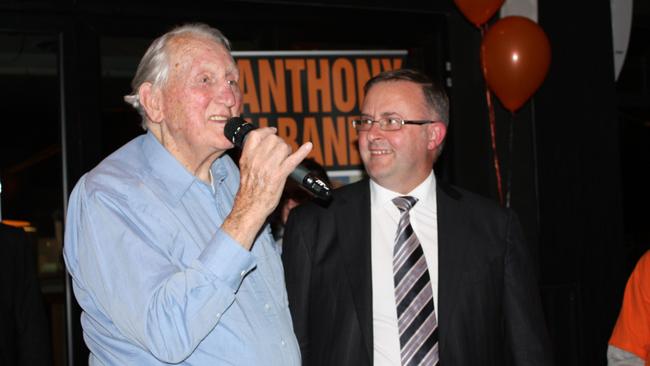
The late Uren was also minister assisting the prime minister for community development and regional affairs. Uren was not in cabinet and had no role in economic policy with the Hawke administration.
In his parliamentary biography, Mr Albanese lists his qualifications and occupations before entering parliament as “research officer” for Uren from 1985 to 1989.
And in a biography on Mr Albanese written by journalist Karen Middleton, for which he participated, she also describes him as a “certain research officer working for Tom Uren” and a “protesting activist” during the Hawke government.
Uren’s memoir, Straight Left, does not mention Mr Albanese as an economics adviser.
There is only one passage referring to Mr Albanese in the entire book. Mr Uren says that for the first year or two that Mr Albanese worked for him they spoke only occasionally.
“Anthony was an activist in Young Labor and was one of the main organisers of the Left in NSW,” Uren wrote. “When I first put him on my staff some of my comrades on the Left said, ‘Oh, you’re putting a young Trot on your staff’.”
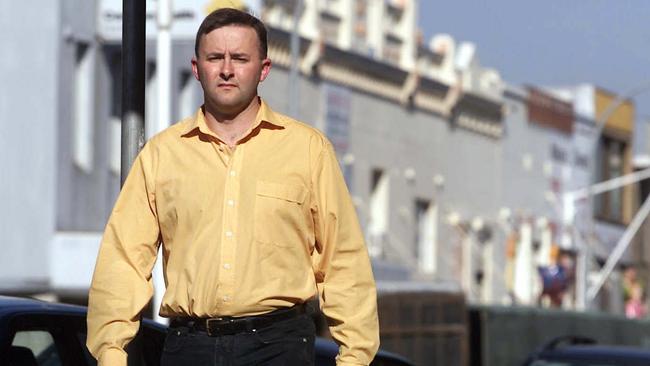
A spokesman for Mr Albanese said – despite Uren not having an economic portfolio in government – that he was employed in the office as an economist.
“Anthony Albanese was employed as an economist by Tom Uren, who served as minister for local government, territories and administrative services between 1985 and 1989. He gave Mr Uren advice on issues including taxation and economic matters,” he said.
Not only did Mr Albanese not advise the Hawke government on economics policy, but he opposed the major economic reforms of the Hawke government – as did Uren.
It’s a point author Troy Bramston makes in his new book, Bob Hawke: Demons and Destiny.
“Anthony Albanese, a delegate to the national conference, was among those in the Left who voted to return to a regulated exchange rate,” Bramston writes.
“Albanese opposed many of the major reforms of the period, from fiscal consolidation and privatisation to cutting tariffs, exporting uranium and introducing HECS.”
Mr Albanese gave an interview to the Sydney Morning Herald in 1987 to complain that the Hawke government had lost touch with voters over its economics policy. “When they talk about wages, budget deficits and cuts, they talk about it like it is out of a textbook,” he said.
“Someone like Keating can put himself up as a possible Labor PM but he is more comfortable mixing with millionaires and business executives than he is with working-class people.”
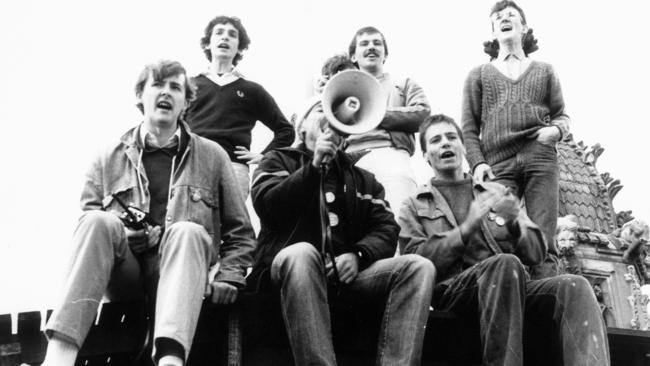
In his own biography, Albanese: Telling it Straight, Middleton writes that Labor figures “Bruce Childs and fellow Left convener Gerry Hand would blast their own government’s measures, using briefing notes prepared for them by young Left staffers including a certain research officer working for Tom Uren.
“The advisers would begin combing through the budget as soon as it was handed down.
“‘We would stay up all night – literally all night,’ Anthony says.”
Mr Albanese discusses in the biography how, during the ALP NSW state conference ahead of Mr Keating’s 1985 tax summit, he and other young Labor delegates protested as the treasurer explained “his reasoning for proposing to pay for income tax cuts with a consumption tax”.
Middleton writes how the “protesting activists” threw Monopoly money in the air.
At the 1991 Australian Labor Party centenary conference, Mr Albanese also criticised the Hawke government, saying the profits of the Prices and Incomes Accord (an agreement between the ACTU and the Labor Party) “have been wasted and squandered in an orgy of speculation and unproductive investment”.
In defending his economic credentials, Mr Albanese on Tuesday said: “I’m absolutely across the economy and what we need to do, which is why I have a practical plan to deal with the economic challenges that Australia faces.
“I have an economics degree from Sydney University. I studied both orthodox economics and political economy. I spent four years there doing it, and then I became an economic policy adviser to the Hawke government.”
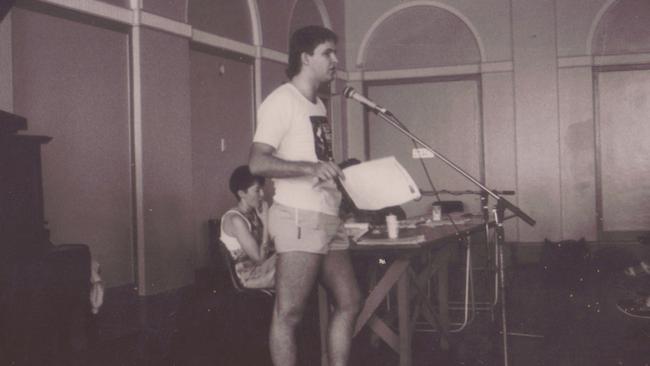
Uren was best known during his time in the Hawke government for overseeing the construction of New Parliament House, playing a role in the creation of self-government for the ACT, and increasing funding for local government and community housing.
The late Labor Left icon was highly critical of Hawke’s economic reforms, describing unfettered market forces as “the law of the jungle”.
In a media interview on Tuesday, Mr Albanese said Uren had been a mentor to him.
Uren wrote in his autobiography that Hawke rushed into the decision to float the Australian dollar and allow foreign banks into Australia.
He described his relationship with Hawke as “confrontation” and accused the Labor prime minister of making economic decisions to “benefit the elitist element”.
“My view was that the Hawke government, particularly in its early days, was making decisions to benefit the elitist element,” he wrote.
“I think the decision to float the dollar, allowing foreign banks to come into Australia, was made too quickly. We did not consider the deeper implications.
“I think what worried me deeply was Keating’s headlong rush to free up the Australian economy to market forces and allow the market to run its own race with blind faith that it would stimulate our economy.
“We went down that path far too quickly. As far as I’m concerned, unfettered market forces are the law of the jungle.”



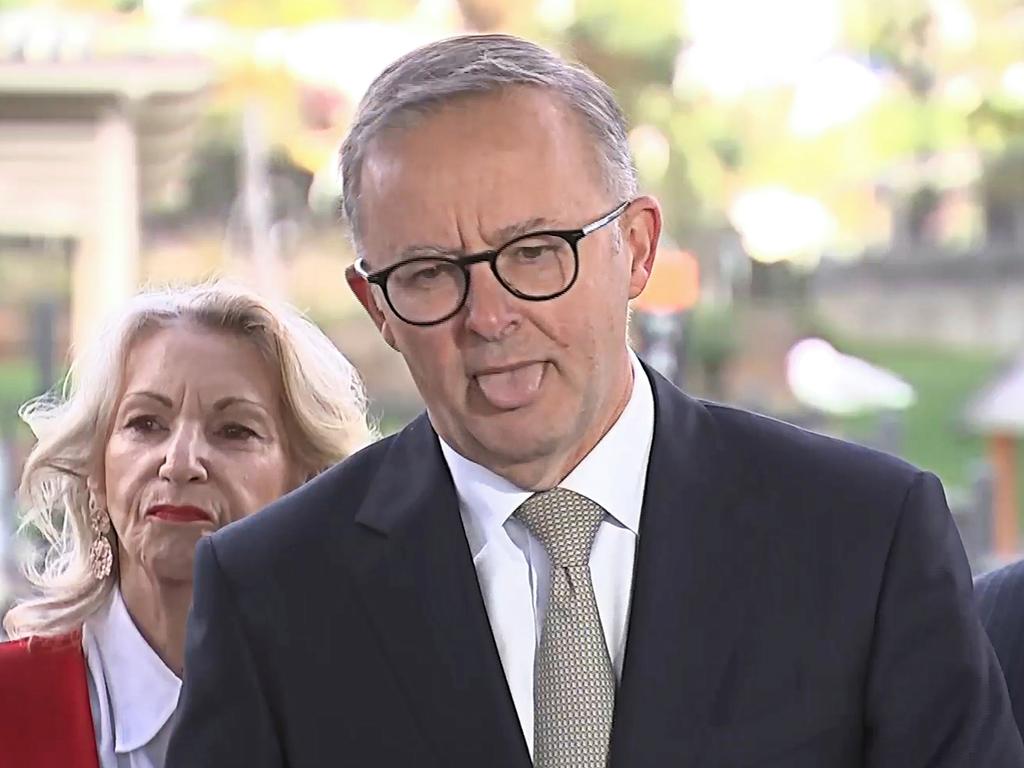
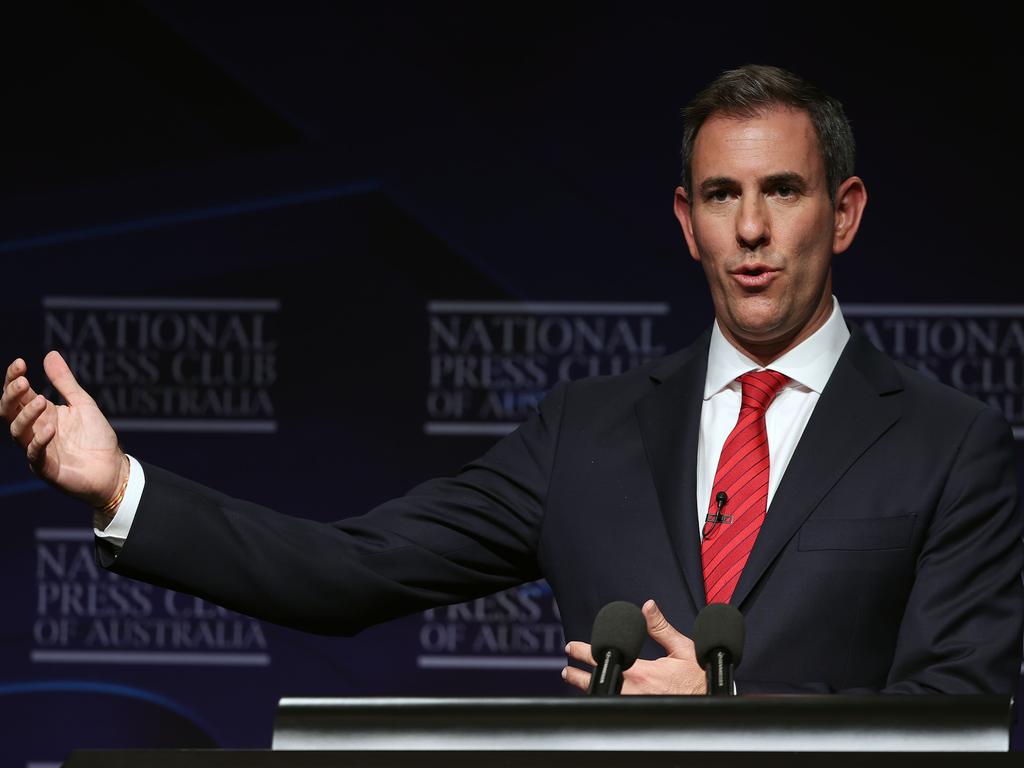


To join the conversation, please log in. Don't have an account? Register
Join the conversation, you are commenting as Logout